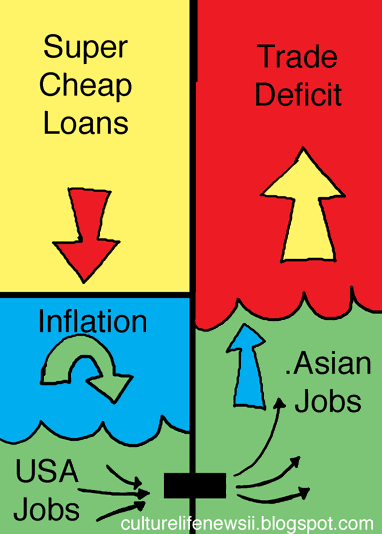
Written By: Edward Krudy
Submitted By: Joseph Penny
NEW YORK (Reuters) - Stocks surged around 7 percent on Monday after the Obama administration detailed a plan to purge toxic assets from bank balance sheets, fueling optimism about a revival in bank lending and driving double-digit gains in financial shares.
The S&P 500 and the Dow industrials posted their biggest one-day percentage gains since late October after Wall Street finally got what it was asking for: relief for the battered banking sector and more data suggesting the housing market could be on the mend.
The success of Treasury's plan hinges on private investment, so markets were encouraged when several large investors, including Bill Gross of top bond fund Pimco, said they would participate in what has become a key part of the government's efforts to unlock credit markets and revitalize the recession-hit economy.
The KBW Bank index (Philadelphia:^BKX - News) posted its best one-day gain since at least 1993, driven higher by a 26 percent gain in Bank of America Corp (NYSE:BAC - News), a 25 percent advance in JPMorgan Chase & Co (NYSE:JPM - News) and a 20 percent gain in Citigroup Inc (NYSE:C - News).
"Even for a bear market rally this is explosive, and frankly it's jaw-dropping. This was a massive move that had three legs," said Peter Kenny, managing director at Knight Equity Markets in Jersey City, New Jersey.
Kenny cited three big factors driving the rally: the bank plan, its "benediction" by Pimco's Gross and traders reversing bets that stock prices would fall.
The Dow Jones industrial average (DJI:^DJI - News) jumped 497.48 points, or 6.84 percent, to 7,775.86 and the Standard & Poor's 500 Index (^SPX - News) surged 54.38 points, or 7.08 percent, to 822.92. The Nasdaq Composite Index (Nasdaq:^IXIC - News) spiked 98.50 points, or 6.76 percent, to 1,555.77.
The market capitalization of the Dow rose $167.4 billion, and the index is now up more than 10 percent on the month, nearly erasing a 12 percent fall in February.
While the removal of toxic assets from banks' balance sheets is seen as a crucial step in allowing banks to make new loans, it will also help bank shares, which are still down 30 percent year to date.
An unexpected rise in housing sales, seen as a key factor in spurring an economic recovery, also boosted sentiment. Data showed the pace of sales of existing homes in the United States rose 5.1 percent in February, the biggest increase since July 2003.
The housing data helped the Dow Jones index of home builders (DJI:^DJUSHB - News) rally nearly 15 percent, with shares of Lennar (NYSE:LEN - News) and Ryland Group (NYSE:RYL - News) up 20.4 percent and 17.6 percent respectively.
Even with the run-up, some analysts said the market had been due for a bounce given the damage incurred when stocks slid to 12-year lows earlier this month.
The benchmark S&P 500 index is up more than 20 percent from the bear market closing low set on March 9. The index on Monday closed above 800 for the first time since February 13.
The government's bank plan involves generous government financing to woo big investors to buy up toxic assets.
The Treasury Department will kick off the financing for its Public-Private Investment Program with $75 billion-$100 billion that will come from the $700 billion financial bailout fund approved by Congress last fall.
Oil shares on Monday were buoyed by a large merger deal in the energy sector and rising oil prices. Exxon Mobil (NYSE:XOM - News) jumped 6.7 percent at $70.53 and Chevron (NYSE:CVX - News) gained 6.9 percent to $69.15.
Canada's No. 2 oil company, Suncor Energy (Toronto:SU.TO - News), agreed to buy rival Petro-Canada (Toronto:PCA.TO - News) for about $14.9 billion to create Canada's largest oil company. Meanwhile, U.S. crude futures rose 3.3 percent or $1.73 to $53.80 a barrel.
On the earnings front, upscale jeweler Tiffany & Co (NYSE:TIF - News) jumped about 15.5 percent to $23.37 after reporting quarterly profit that beat expectations.
The S&P Retail index (Chicago Options:^RLX - News) rose nearly 6.42 percent.
And shares of Walgreen Co (NYSE:WAG - News) rose 9.4 percent to $26.58 after the drugstore chain posted better-than-expected profit.
Trading was active on the New York Stock Exchange, with about 1.91 billion shares changing hands, above last year's estimated daily average of 1.49 billion, while on Nasdaq, about 2.24 billion shares traded, below last year's daily average of 2.28 billion.
Advancing stocks outnumbered declining ones on the NYSE by 2863 to 259 while advancers beat decliners on the Nasdaq by about 2262 to 429.
For more informantion click here.































.jpg)














